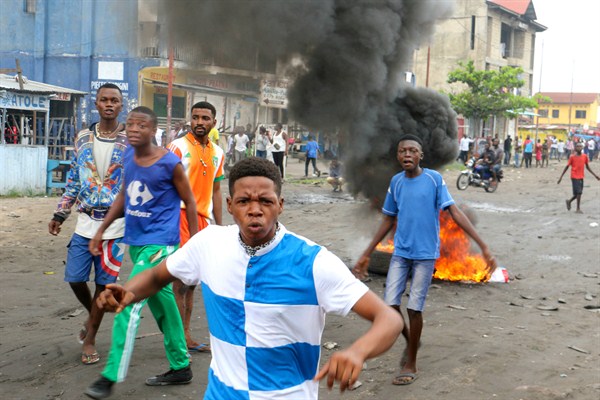UVIRA, Democratic Republic of Congo—When the rebels attacked, some of them arrived on motorized wooden boats, toting rocket-propelled grenades. Others streamed down the lush hills that surround this city, perched on the northern shore of Lake Tanganyika, East Africa’s second-largest lake. Civilians fled in their wake.
Members of the group, called the National People’s Coalition for the Sovereignty of Congo, had one simple aim, according to Alemasi Musoshi, a 26-year-old rebel who took part in the attack on Uvira last September. “All we ask is for Kabila to leave power,” he says. Congo’s embattled president, Joseph Kabila, has managed, despite domestic and international condemnation, to stay in office for more than a year since his mandate expired.
Listen to Philip Kleinfeld discuss this article on WPR’s Trend Lines Podcast. His audio starts at 16:14.

